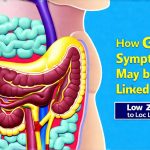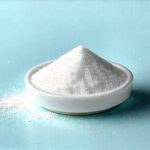Enzymes are biological catalysts essential for nearly every process within living organisms – from digestion and nerve function to muscle contraction and energy production. They accelerate chemical reactions with remarkable efficiency, yet they themselves remain unchanged in the process. This incredible capability relies not only on the enzyme’s protein structure but also heavily on cofactors, non-protein chemical compounds that are crucial for their activity. Among these cofactors, two minerals stand out for their pervasive roles: zinc and magnesium. These aren’t simply passive bystanders; they actively participate in enzyme function, structural integrity, and even the synthesis of enzymes themselves, making them indispensable to life as we know it. Understanding their individual contributions and interconnectedness is key to appreciating the complexity of biochemical processes.
The human body requires a consistent supply of both zinc and magnesium, obtained primarily through diet, to maintain optimal enzymatic activity. Deficiencies in either mineral can lead to impaired enzyme function, manifesting as various physiological disruptions depending on which enzymes are affected. It’s important to note that while these minerals share some overlapping functions, they also possess unique characteristics and play distinct roles within the enzymatic landscape. This article will delve into the specific ways zinc and magnesium contribute to enzyme production and activity, highlighting their importance for overall health and well-being. We’ll explore how they influence different stages of enzyme action, from initial synthesis to catalytic function, and touch upon the consequences of deficiency.
Zinc’s Role in Enzyme Production and Function
Zinc is a remarkably versatile mineral that plays an integral role in numerous biological processes, and its involvement with enzymes is particularly significant. It’s often considered a structural element within many enzyme systems, meaning it directly contributes to maintaining the enzyme’s three-dimensional shape – critical for function. Many enzymes require zinc as a catalytic cofactor, actively participating in the chemical reaction itself. A large number of metalloenzymes, those containing metal ions, utilize zinc. Examples include carbonic anhydrase (involved in CO2 transport), alcohol dehydrogenase (alcohol metabolism), and matrix metalloproteinases (tissue remodeling). Without sufficient zinc, these enzymes cannot effectively perform their functions.
The importance of zinc extends beyond simply being a part of the active site; it also plays a crucial role in enzyme synthesis itself. Zinc is involved in protein synthesis – the process by which enzymes are created from genetic information. Specifically, it’s essential for ribosomal function and proper mRNA translation. Ribosomes, the cellular machinery responsible for building proteins, require zinc for stability and accurate assembly. Furthermore, zinc finger proteins, which bind to DNA and regulate gene expression, influence the production of various enzymes. This means that even before an enzyme is created, zinc is instrumental in determining which enzymes are made and how much.
Zinc’s contribution to enzymatic activity isn’t limited to a few specific enzymes. It affects a broad spectrum, impacting metabolic pathways like carbohydrate metabolism, protein digestion, and immune function. Consider the digestive process: zinc-dependent enzymes like carboxypeptidase help break down proteins in the small intestine. Insufficient zinc can hinder this process, leading to malabsorption and potential nutritional deficiencies. Moreover, zinc is vital for antioxidant defenses, indirectly protecting enzymes from oxidative damage that could compromise their activity. This protective role further underscores its importance in maintaining enzymatic health over time.
Magnesium’s Role as an Enzymatic Cofactor
Magnesium, often overshadowed by calcium, is nonetheless essential for life and intimately involved in enzyme function, albeit in a slightly different way than zinc. While zinc frequently contributes to the structural integrity of enzymes or directly participates in catalysis, magnesium primarily acts as a stabilizer and facilitator. Many enzymatic reactions require adenosine triphosphate (ATP), the primary energy currency of cells. Magnesium is absolutely critical for ATP binding and subsequent hydrolysis – the process of breaking down ATP to release energy. This makes magnesium essential for countless enzyme-driven processes that require energy input.
Magnesium also plays a crucial role in maintaining the proper conformation of enzymes and nucleic acids, including those involved in enzyme synthesis. It interacts with phosphate groups, neutralizing their negative charge and allowing for more stable structures. This stabilization is particularly important for enzymes that rely on ATP or other nucleotide cofactors. Without sufficient magnesium, these enzymes can become unstable and lose their catalytic efficiency. Enzymes involved in glycolysis – the breakdown of glucose to produce energy – are heavily reliant on magnesium for proper function, highlighting its importance in cellular energy production.
Furthermore, magnesium isn’t just about powering existing enzymes; it also influences their creation. It’s essential for ribosomal RNA (rRNA) structure and stability, which is vital for protein synthesis and thus enzyme production. Like zinc, magnesium indirectly affects the types and amounts of enzymes produced by influencing gene expression. It impacts DNA methylation – a process that can alter gene activity – and therefore helps regulate the enzymatic landscape within cells. Maintaining adequate magnesium levels ensures a smooth and efficient enzymatic ecosystem.
Zinc & Magnesium Interplay: Synergistic Effects
The relationship between zinc and magnesium isn’t one of isolated roles; they often work synergistically to enhance enzyme function. Many enzymes require both minerals for optimal activity, and their deficiency can exacerbate each other’s effects. For example, several metalloproteases require both zinc for catalysis and magnesium for structural stability. A lack of either mineral will significantly reduce the enzyme’s ability to function effectively. This synergistic relationship extends beyond individual enzymes, influencing entire metabolic pathways.
Consider the process of energy production: Magnesium facilitates ATP hydrolysis, releasing energy that is then utilized by enzymes – many of which contain zinc as a cofactor. This interconnectedness highlights the importance of maintaining adequate levels of both minerals for efficient cellular metabolism. A deficiency in one can disrupt the function of the other, leading to a cascade of negative effects. Furthermore, studies suggest that zinc and magnesium may compete for absorption within the body. This means that an imbalance between these two minerals can further hinder their uptake and utilization by enzymes.
Maintaining a balanced intake of both zinc and magnesium through diet is therefore crucial for optimal enzymatic function. A dietary approach focusing on whole foods rich in these minerals – such as leafy greens, nuts, seeds, legumes, and whole grains – offers the best strategy for ensuring adequate levels. Supplementation should only be considered under the guidance of a healthcare professional, given the potential for interactions and imbalances.
Consequences of Deficiency: Enzymatic Impairment
Deficiencies in either zinc or magnesium can have profound effects on enzyme function, leading to a wide range of health problems. Zinc deficiency is relatively common worldwide, particularly in developing countries where dietary intake is limited. It can result in impaired immune function (due to reduced activity of enzymes involved in immune cell development), delayed wound healing (enzymes necessary for tissue repair are compromised), and even cognitive dysfunction (enzymes critical for brain function are affected). Digestive issues are also frequent, stemming from reduced enzyme production in the gut.
Magnesium deficiency, often subtle and difficult to diagnose, can lead to muscle cramps, fatigue, irregular heartbeat, and increased risk of chronic diseases. Enzymatically, magnesium deficiency impairs energy production, leading to decreased ATP availability and reduced activity of enzymes involved in glycolysis and oxidative phosphorylation. This affects cellular function across the board. Furthermore, it can disrupt DNA repair mechanisms (enzymes involved in DNA replication and repair require magnesium), increasing susceptibility to genetic mutations and potentially contributing to cancer development.
It’s important to recognize that deficiencies often don’t present as dramatic symptoms initially but rather develop gradually over time, leading to subtle impairments in enzymatic function that can accumulate into significant health problems. The interconnectedness of zinc and magnesium means that a deficiency in one mineral can exacerbate the effects of a deficiency in the other, creating a vicious cycle.
Dietary Sources & Considerations
Obtaining sufficient zinc and magnesium through diet is generally preferred over relying solely on supplements. Excellent sources of zinc include oysters (the richest source), red meat, poultry, beans, nuts, and whole grains. However, plant-based sources contain phytates – compounds that can inhibit zinc absorption – so soaking or sprouting these foods can improve bioavailability. Magnesium is abundant in leafy green vegetables (spinach, kale), nuts, seeds, dark chocolate, avocados, and legumes.
Several factors influence the body’s ability to absorb and utilize these minerals. Age, gastrointestinal health, and interactions with other nutrients all play a role. For example, high calcium intake can interfere with zinc absorption. Similarly, excessive alcohol consumption can deplete magnesium levels. Maintaining a balanced diet rich in whole foods – avoiding processed foods, sugary drinks, and excessive amounts of refined carbohydrates – is crucial for optimizing mineral status. If supplementation is considered necessary, it’s essential to consult with a healthcare professional to determine appropriate dosages and avoid potential interactions or imbalances. Prioritizing dietary sources remains the cornerstone of ensuring adequate zinc and magnesium intake for optimal enzyme production and function.


















